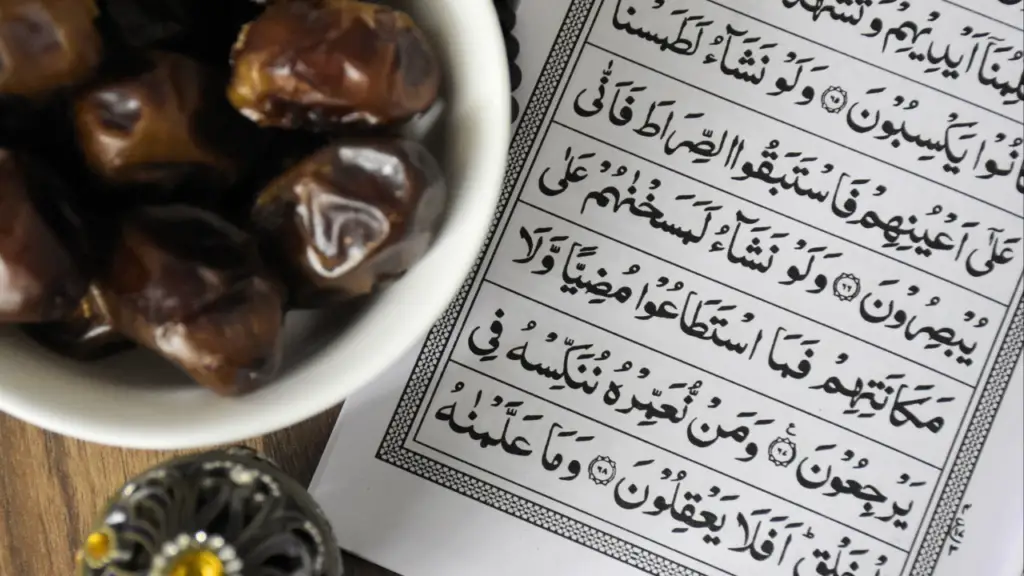Can I Break My Fast if I Feel Weak Islam?
Navigating Weakness in Ramadan: The Islamic Perspective on Breaking the Fast

Can I Break My Fast if I Feel Weak Islam?

Introduction
Fasting is a significant spiritual practice observed by Muslims around the world during the holy month of Ramadan. It involves abstaining from food, drink, and other physical needs from dawn until sunset. While fasting is a highly rewarding act of worship, there are instances when a person might feel weak or unwell during the fast. This leads to the question: Can I break my fast if I feel weak in Islam? Understanding the Islamic perspective on this matter is essential for practicing Muslims.
The Importance of Fasting in Islam
Fasting during Ramadan holds immense significance in Islam. It is one of the Five Pillars of Islam, which are the core principles that guide a Muslim’s faith and actions. Fasting is not only a way to exercise self-discipline and control over physical desires but also a means to draw closer to Allah through acts of worship and spiritual reflection. The Quran explicitly states, “O you who have believed, decreed upon you is fasting as it was decreed upon those before you, that you may become righteous.” (Quran 2:183)
Understanding Weakness During Fasting
It’s not uncommon for individuals to experience weakness, fatigue, or even illness while fasting, especially in cases of extreme heat, dehydration, or medical conditions. Islam is a religion that emphasizes the preservation of life and health. Therefore, if a person feels weak to the extent that it threatens their well-being, it is permissible to break the fast in such circumstances.
The Islamic Perspective on Breaking the Fast Due to Weakness
The Islamic jurisprudence recognizes the concept of “rukhsah,” which refers to concessions or dispensations granted in situations where following the strict rules might cause harm. In the case of feeling weak during fasting, scholars agree that it is permissible to break the fast if one’s health is at risk. The Prophet Muhammad (peace be upon him) said, “There is no obedience in that which involves disobedience to Allah. Verily, obedience is only in that which is good.” (Ibn Majah)
Islam places a high value on the well-being of individuals. The Quran states, “And do not kill the soul which Allah has forbidden, except by right.” (Quran 17:33) This principle underscores the importance of preserving life and health, even if it means temporarily discontinuing the fast.
Consulting Medical Professionals
In situations where weakness or illness arise during fasting, consulting medical professionals is highly recommended. Seeking medical advice helps to accurately determine whether breaking the fast is necessary. Islam encourages the use of knowledge and expertise to make informed decisions while upholding the faith’s principles.
Making Up for Missed Fasts
If a person breaks their fast due to weakness or illness, they are required to make up for the missed fast days once they have recovered. This can be done on alternative days after Ramadan, ensuring that the individual fulfills their religious obligation and earns the rewards of fasting.
Conclusion
Fasting during Ramadan is a profound spiritual journey for Muslims, promoting self-discipline, empathy, and closeness to Allah. However, the religion acknowledges the importance of health and well-being. If an individual feels weak or unwell during the fast, Islam allows for the breaking of the fast to protect one’s health. This concession is rooted in the principle of preserving life, which holds a significant place in Islamic teachings.
It’s essential to understand that breaking the fast due to weakness is not a sign of weakness in faith but rather a responsible and balanced approach that Islam encourages. The faith recognizes that each individual’s circumstances are unique, and the well-being of the person takes precedence. By seeking medical advice, making up for missed fasts, and understanding the underlying principles, Muslims can navigate situations of weakness during fasting while upholding their faith and health in harmony.
Faqs of Can I Break My Fast if I Feel Weak Islam?
Can I Break My Fast if I Feel Weak Islam?
Yes, Islam recognizes the importance of health and well-being. If you feel weak to the point where it threatens your health, you are allowed to break your fast to protect yourself.
Does breaking the fast due to weakness go against Islamic teachings?
No, Islam encourages the preservation of life and health. If continuing the fast could harm your well-being, it is in accordance with Islamic principles to break the fast temporarily.
Should I consult a medical professional before breaking my fast?
Yes, consulting a medical professional is advisable. It helps you determine the severity of your condition and whether breaking the fast is necessary. Islam encourages seeking knowledge and expertise in such matters.
Do I have to make up for the missed fast days if I break my fast due to weakness?
Yes, you are required to make up for the missed fast days once you have recovered. This ensures you fulfill your religious obligation and earn the rewards of fasting.
Will breaking my fast due to weakness affect my spiritual experience in Ramadan?
Breaking your fast due to weakness doesn’t diminish your spiritual experience. Islam emphasizes balance and understanding individual circumstances. It’s an act of responsibility, not a reflection of weak faith.
Can I continue fasting if I feel slightly weak but can manage it?
If your weakness is manageable and doesn’t pose a risk to your health, it is generally encouraged to continue fasting. However, listen to your body and stop if the weakness becomes severe.
What if I break my fast but then feel better later in the day?
If you break your fast and later feel better, your intention to preserve your health was valid. You can continue fasting for the remainder of the day and make up for the earlier missed fast day later.
Is breaking the fast due to weakness a sign of a lack of devotion?
No, Islam acknowledges that circumstances vary, and health takes precedence. The faith values your well-being, and breaking the fast in the face of weakness is a responsible choice, not a reflection of devotion.
Can I break my fast solely because I find fasting difficult?
Islam encourages perseverance, and fasting might be challenging. However, breaking the fast solely due to difficulty is not typically permitted. Weakness should involve a genuine risk to your health.
How can I strike a balance between my faith and my health during Ramadan?
Balancing faith and health involves seeking medical advice, assessing your condition honestly, and making informed decisions. Islam values intention and effort; breaking the fast for health reasons is in line with this principle.





